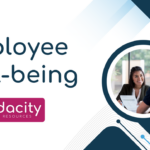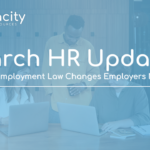Minnesota HR Updates
This article highlights basic information on what we know at this juncture on topics employers should have on their radar.
Stay tuned for details in the upcoming months.
Minnesota HR Updates: Non-Compete Agreements
Governor Walz signed into law a bill that bans most non-compete agreements in Minnesota, with limited exceptions.
As of July 1, 2023, employers will no longer be permitted to enter into agreements with employees (or independent contractors) that restricts the following:
- Working for another employer for a specified period of time;
- Working in a certain geographic area; or
- Working for another employer in a similar capacity.
The law would specifically exclude the following:
A covenant not to compete does not include a nondisclosure agreement, or agreement designed to protect trade secrets or confidential information. A covenant not to compete does not include a nonsolicitation agreement, or agreement restricting the ability to use client or contact lists, or solicit customers of the employer.
In addition, covenant not to compete provisions would still be valid if they are reached as part of the “sale of a business” or in the “anticipation of the dissolution of a business.”
The law would not apply retroactively. As such, non-compete provisions entered into before July 1st would still be valid and enforceable (provided they meet enforceability standards).
Minnesota will join the list of states that restrict or ban the use of non-compete provisions (California, Colorado, Illinois, Maine, Maryland, New Hampshire, North Dakota, Oklahoma, Oregon, Rhode Island, Virginia, and Washington).
NLRB and Non-Competes. While the new law in Minnesota is not retroactive, in a memo released May 30, 2023, National Labor Relations Board (NLRB) General Counsel Jennifer Abruzzo announced that noncompete agreements violate the National Labor Relations Act (NLRA). The NLRA applies to both nonunionized and unionized employers. While details are still unclear, the announcement may result in unfair labor practice charges for any employer that uses noncompete agreements with non-managerial positions (NLRA applies only to nonmanagerial, nonsupervisory staff).
Minnesota HR Updates: Sick and Safe Time
New law will create paid sick and safe leave in Minnesota.
The language requires that employers with one or more employees provide 1 hour of paid sick/safe time for every 30 hours worked up to a maximum of 48 hours per year.
The anticipated effective date is January 1, 2024. Earned Sick and Safe Time (ESST) ordinances currently exist in Minneapolis, St. Paul, and Duluth. A new Bloomington, MN ordinance is scheduled to take effect July 1, 2023.
Minnesota HR Updates: Marijuana Legalization
Governor Walz signed a bill to decriminalize possession and use of marijuana (cannabis) by individuals age 21+ (with some exceptions).
Minnesota will follow in the footsteps of twenty-two other states with similar legislation.
A new state entity will be created to regulate the new law, the already existing medical marijuana program, and recently legalized THC products.
The language includes changes to the existing DATWA (Minnesota’s Drug and Alcohol Testing in the Workplace Act, Minn. Stat. §§ 181.950-181.957). As aspects of the legislation are effective as early as August 1st, it is imperative for employers to update workplace policies.
Minnesota HR Updates: Paid Family and Medical Leave
This controversial legislation will create a family and medical benefit plan allowing employees to take paid leave from work for family and medical reasons.
The language caps total family and medical leave at 20 weeks. It will include all MN employers and will provide job-protected paid leave after 90 days of employment for things like parental leave and medical leave.
Under the plan, employers and employees would pay into a state pool that functions like the unemployment fund. Anticipated effective date of the premium is July 1, 2025.
Minnesota HR Updates: Secure Choice Retirement Program
On May 19th, Governor Walz signed a bill that provides funding to establish and administer the Minnesota Secure Choice Retirement Program.
“The Secure Choice program is intended to benefit employees in the private sector who have no opportunity to save for retirement through an employer-sponsored retirement plan such as a 401(k) plan. Employers that do not sponsor a retirement plan for their employees are required to transmit a percentage of each employee’s pay to a state sponsored individual retirement account (IRA). Employees have the option to change the contribution percentage or opt out of participation altogether. Employees direct the investment of their accounts into a diversified array of investment funds offered through the State Board of Investment (SBI).”
There is no cost to employers, except for incidental costs that may be incurred to modify payroll systems to deduct contributions and send them to the SBI for deposit into employee accounts.
Minnesota HR Updates: CROWN Act
The CROWN Act amends the Minnesota Human Rights Act to confirm protection against discrimination based on race-based natural hair texture and styles such as braids, locs, and twists. CROWN stands for “Create a Respectful and Open World for Natural Hair”.
Federal Law: The PUMP for Nursing Mothers Act
The Fair Labor Standards Act (FLSA) requires employers to provide reasonable break time for an employee to express milk for their nursing child for one year after the child’s birth each time such employee has need to express the milk. Employees are entitled to a place to pump at work, other than a bathroom, that is shielded from view and free from intrusion from coworkers and the public. NOTE: The FLSA poster was updated 04/2023.
About the Author
Human Resources thought leader, Stacy Johnston, provides innovative solutions with a mission to support organizations in understanding and engaging their biggest competitive advantage… their employees. Johnston is a licensed attorney and holds the SHRM-CP credentials.
Interested in HR support? Need to update your Handbook? Check out the online resources at www.audacityhr.com or reach out and connect with us!!
Looking for more resources to prevent workplace bullying? Check out our blog posts: Part 1 and Part 2!






